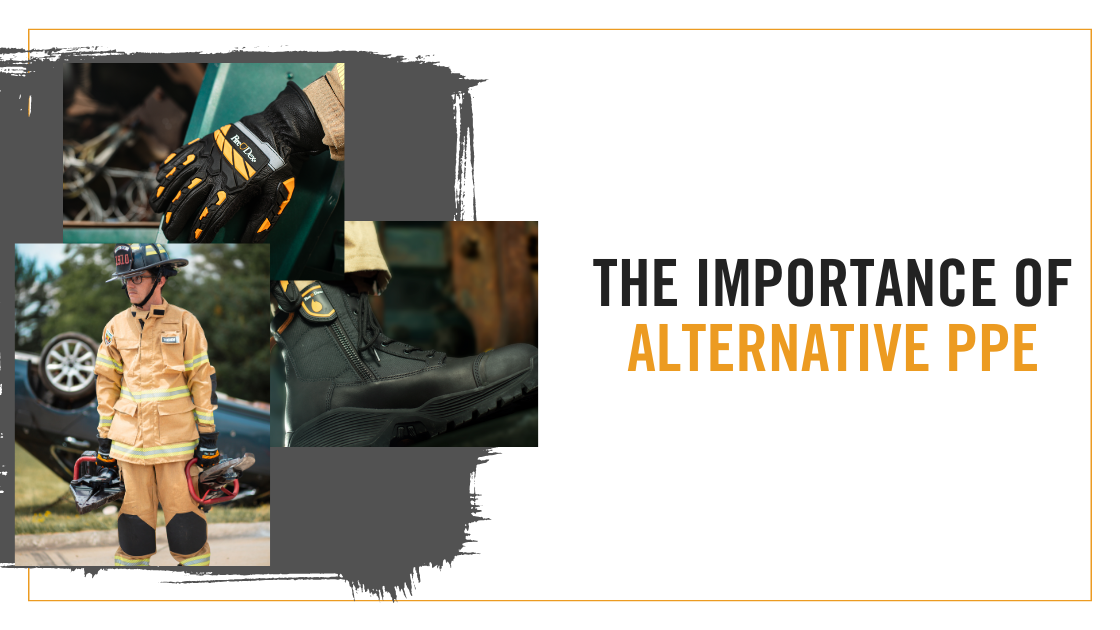For a long time, firefighters have had only two clothing options while on duty.
As retired FDNY Battalion Chief Bob Keys told us, “In my 31 years at FDNY, we were never issued anything else to wear; it's either station wear or three-layer [structural gear].”
But a new generation of firefighting gear, known as Alternative PPE, is quickly becoming the new normal.
But just what makes alternative PPE so important?
Most Calls Aren’t Structural
Over the last 40 years, fire calls have decreased by more than half. In the same period, EMS calls have increased by 421% and all other calls have increased by nearly 300%.
That means that over 90% of your calls aren’t related to fire.
In a conversation with Battalion Chief Andy Starnes of Insight Training, Chief Keys emphasized this point, saying “There are no thermal insults needed to be protected from [for[ EMS. Certainly, no thermal insults at an elevator emergency.”
Chief Starnes agreed, pointing to environments where wearing turnouts isn’t necessary and may even add increased risk in the long run due to heat stress and stress on your gear.
He gives the example of wearing gear in a hot and humid environment. “If you're something like a Houston firefighter dealing with 100-degree, 90% humidity days,” says Starnes, “and you’re wearing the highest TPP gear [turnouts] you can wear on fire alarms. And they're saturated with sweat and you’re wearing this gear on extrication calls.
“Now let's fast forward a couple hours. This gear is soaking wet sitting inside of a hot cab and they run a fire call, and it turns out there’s an actual fire. What have we done to your level of protection and their fatigue level by making you wear this gear all day long instead of a lighter weight gear when you could wear on those less threatening calls? And then if you get in an environment where there is a lot of heat and thermal insult where you need that thermal protective performance, what did we do if that gear is soaking wet with sweat?”
Chief Starnes points to research showing that gear that is soaked in sweat can negatively impact its ability to shield from heat.
But he also brings another point, that wearing lighter gear for less threatening calls decreases how much strain firefighters put on their bodies.
Heat stress is the number cause of LODDs, so it’s critical that firefighters have access to gear that keeps them safe from both fire and from heat stress.
Lighter alternative PPE lessens the chances of exhaustion and overheating while providing the right amount of protection for most calls. Alternative PPE also keeps turnouts battle ready for when they’re really needed.
Another reason why Chief Starnes recommends alternative PPE is because of cross contamination. He mentions a study showing that the inside of a firetruck is often filled with dangerous contaminants and points to the fact that firefighters are wearing the same gear in and out of the truck and into dayrooms and bedrooms.
Separate gear minimizes that risk of cross contamination and provides another step in keeping firefighters healthy.
A Better Way to Get Into Alternative PPE
For many fire departments, alternative PPE can seem like a large investment in an entirely new class of gear. That’s why Fire-Dex put together the RescuePro Package, which bundles three pieces of Alternative PPE while saving up to 30% per firefighter.
With RescuePro, you get access to:
- TECGEN51 Fatigues: An incredibly strong and lightweight single-layer garment that can be worn to dozens of different non-fire calls.
- Dex-Rescue Gloves: Extrication gloves that provide the dexterity you need for complex tasks.
- FDXL90 Boots: All-day comfort and protection for all your non-structural calls.
RescuePro gets you the Alternative Gear you need to start lessening heat stress, carcinogen spread, and unnecessary wear and tear on your turnouts. All elements are certified to NFPA 1951, giving you the flexibility to wear this gear on the majority of your calls!







Leave a Reply